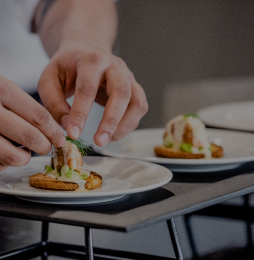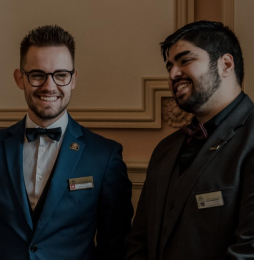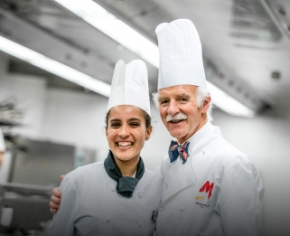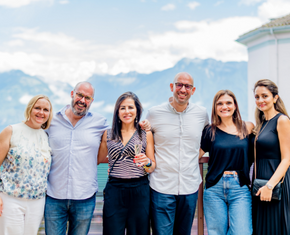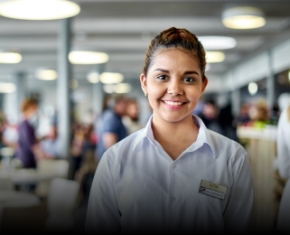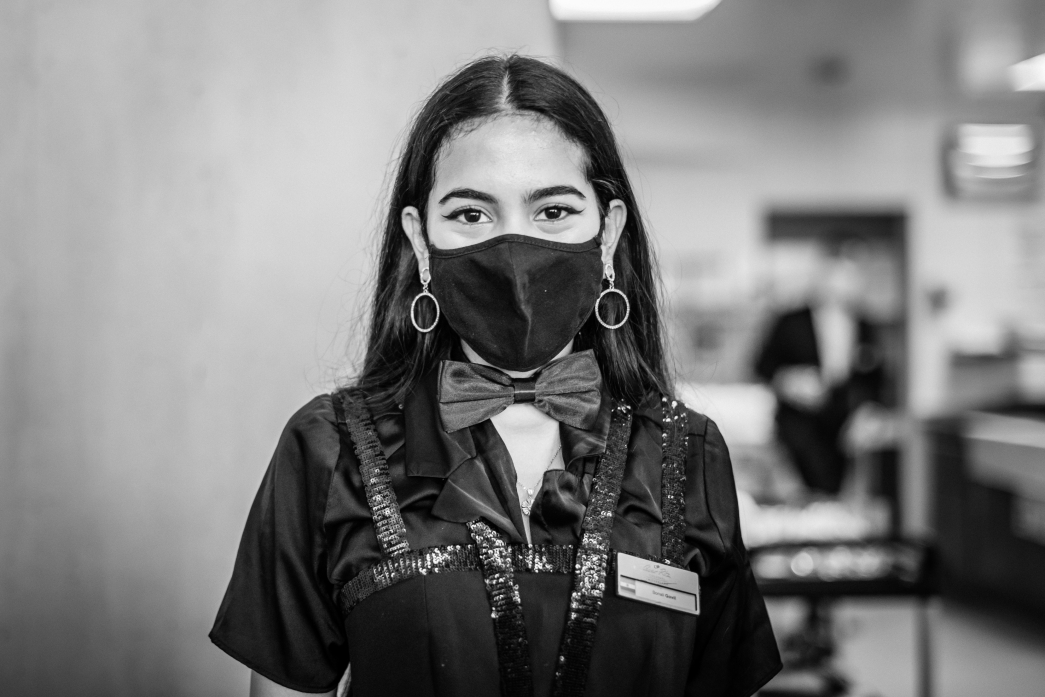- About
- Schools
- Lifelong Education
- News & Events
- Community
#Academics
Hospitality Trends in a Post-COVID-19 World
There’s no doubt that the past year has challenged the industry to find innovative solutions to adapt and survive, not only by our own experience but also through shared experiences with different hospitality professionals worldwide. Patrick Taffin, Assistant Dean at SHMS Leysin, takes a look at some trends with the most favorable outcomes.
SHMS Leysin Campus
Remote locations and fewer interactions
Across the hotel industry, the common trend that has emerged is that clients seek to minimize their contact with other guests. From Swiss ski resorts to luxury villas in the Maldives, guests have flocked towards these locations to limit their contact with others. It is not hard to see the logic here: the less human interaction, the lower the risk of getting the virus.
From Swiss ski resorts to luxury villas in the Maldives, guests have flocked towards these locations to limit their contact with others.
Another common preference is hotels that offer open-airspaces, expanding their gardens, limiting the chances of contamination. Hotels that cannot provide this have kept the promise of social distancing by providing additional room service options.
Takeaway vs. Sustainability
The industry needs to innovate its engagement with customers. Additional room service options have become vital to attracting in-house guests. Due to restrictions, limited spaces in restaurants have meant that most hotels cannot cater to all in-house guests and need to find solutions. Room service isn’t the only solution available; takeout has become essential too. Seizing this opportunity, hotels and restaurants have expanded takeaway offerings to external guests.
With the continued pursuit of sustainable choices, how can we combine takeaway and sustainability for a better and brighter tomorrow?
However, one element that needs to be considered is removing single-use plastic from takeaway services and sourcing ingredients from local farms. As travelers look for remote and open spaces, they tend to migrate to locations surrounded by nature. Sustainability has always been an important topic, and with the impact of the pandemic, consumers have opted towards secluded destinations while remaining conscious of reducing the impact of human activities. With the continued pursuit of sustainable choices, how can we combine takeaway and sustainability for a better and brighter tomorrow?
Local now more than ever
Aside from locally sourcing, local inbound travel is booming. Boutique hotels have reached peak levels of occupancy. The good news is that people will always want to travel. Still, with mandatory quarantines, constant changing of red-listed countries, fear of contamination, many have decided to enjoy and explore their own countries. This translates to the success of local and independent hotels. Outbound tourism is not gone, and with the vaccination campaign in full swing, there will surely be a comeback, but the focus on local “pearls” is a critical success strategy.
With mandatory quarantines, constant changing of red-listed countries, fear of contamination, many have decided to enjoy and explore their own countries.
Rebound for outbound
During the past year of uncertainty, research has shown that consumers have reduced their day-to-day spending. Summer 2021 is expected to be a joyous season for the hospitality industry. Those who have not been able to travel for over a year are ready to discover new places and make up for the missed time. Expect to see a good return of leisure travel from Summer 2021 onwards.
Recovery of business travel may take longer. Video calls, digital collaboration, and remote working will still replace many onsite meetings and conferences.
Did I mention digital?
The importance of investing in digital media presence (social media, online distribution channels, digital campaign, and website) has never been so evident. Delivery services, contactless payments, video conferences are just examples of how businesses have accelerated and adapted. Hospitality businesses can assert themselves into the virtual environment to promote their mastery of guest service experience to the online world.
There will be more challenges along the way. However, Covid-19 has shaped the hospitality industry for a better, sustainable, and enriching future. As the industry returns to its sources, traditional experiences are on-trend, and the local community will source new experiences.
#Academics





